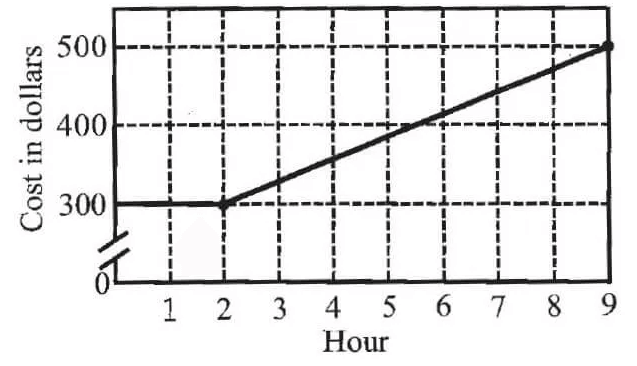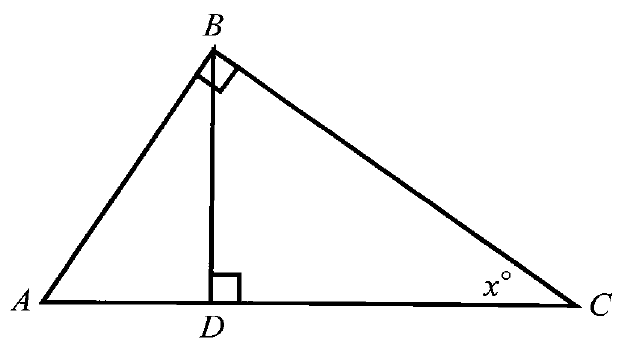DOMAIN AND RANGE OF A RELATION
In the scoring system of some track meets, first place is worth 5 points, second place is worth 3 points, third place is worth 2 points, and fourth place is worth 1 point.
This scoring system is a relation, so it can be shown as ordered pairs, {(1, 5), (2, 3), (3, 2), (4, 1)}.
The domain of a relation is the set of first coordinates (or x-values) of the ordered pairs. The range of a relation is the set of second coordinates (or y-values) of the ordered pairs.
The domain of the track meet scoring system is {1, 2, 3, 4}. The range is {5, 3, 2, 1}.
Solved Problems
Problem 1 :
Find the domain and range of the relation shown in the graph below.
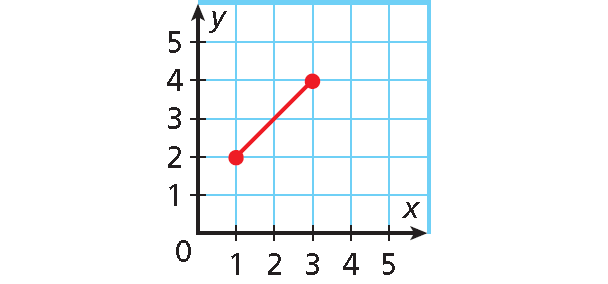
Solution :
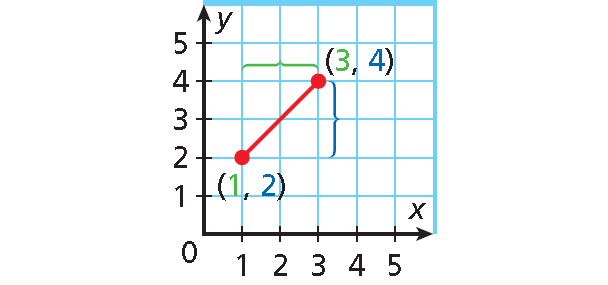
The domain is all x-values from 1 through 3, inclusive.
Domain : 1 ≤ x ≤ 3
The range is all y-values from 2 through 4, inclusive.
Range : 2 ≤ y ≤ 4
Problem 2 :
Find the domain and range of the relation shown in the mapping diagram below.
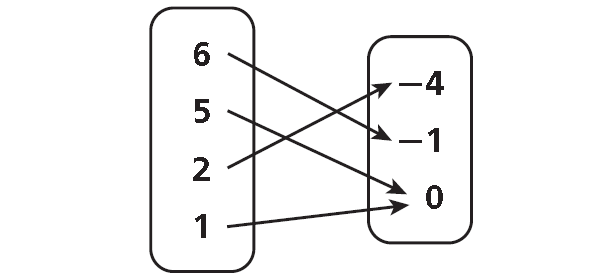
Solution :
Domain = {1, 2, 5, 6}
Range = {-4, -1, 0}
Problem 3 :
Find the domain and range of the relation shown in the mapping diagram below.
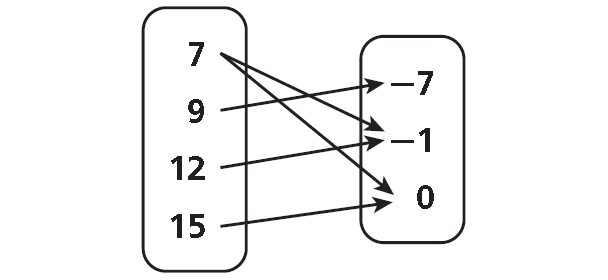
Solution :
Domain = {7, 9, 12, 15}
Range = {-7, -1, 0}
Problem 4 :
Find the domain and range of the relation shown in the table below.
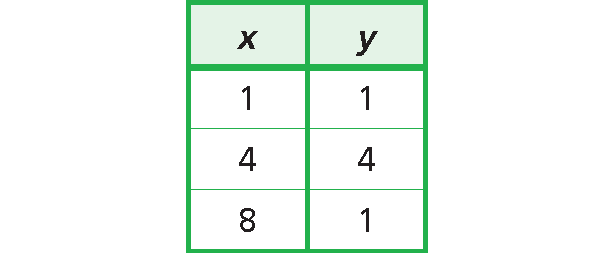
Solution :
Domain = {1, 4, 8}
Range = {1, 4}
Problem 5 :
Let A = {1, 2, 3, 4} and B = {1, 4, 9, 16, 25}. If R is the relation which maps the elements from A to B using the rule f(x) = x2, then find the domain and range of R.
Solution :
R maps the elements from A to B using the rule
f(x) = x2
Then, we have
f(1) = 12 = 1
f(2) = 22 = 4
f(3) = 32 = 9
f(4) = 42 = 16
So,
R = {(1, 1), (2, 4), (3, 9), (4, 16)}
Therefore,
Domain (R) = {1, 2, 3, 4}
Range (R) = {1, 4, 9, 16}
Problem 6 :
Let A = {1, 2, 3} and B = {5, 6, 7, 8}.
R is the relation which maps the elements from A to B as shown below.
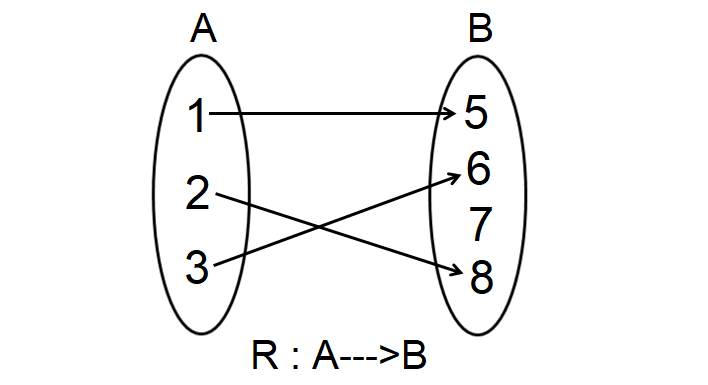
Find the domain and range of R.
Solution :
From the arrow diagram shown above,
R = {(1, 5), (2, 8), (3, 6)}
Therefore,
Domain (R) = {1, 2, 3}
Range (R) = {5, 6, 8}
Problem 7 :
Let X = {a, b, c} and Y = {d, e, f, g}.
R is the relation which maps the elements from X to Y as shown below.
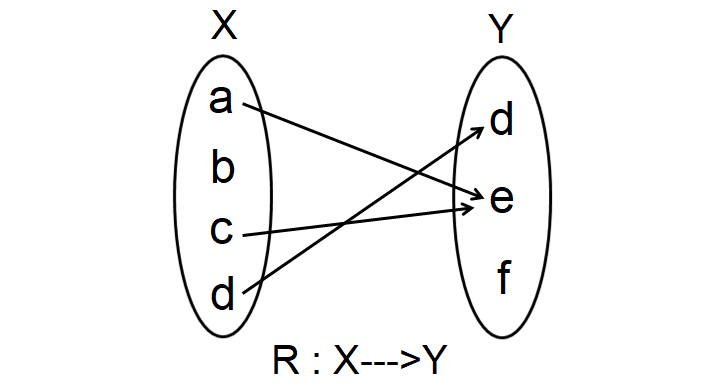
Find the domain and range of R.
Solution :
From the arrow diagram shown above,
R = {(a, e), (c, e), (d, f)}
Therefore,
Domain (R) = {a, c, d}
Range (R) = {d, e}
Problem 8 :
Let R be a relation defined as given below.
R = {(1, 1), (2, 3), (3, 4), (2, 7)}
Find the domain and range of R and R-1. Discuss the relationship between the domain and range of R and R-1.
Solution :
R = {(1, 1), (2, 3), (3, 4), (2, 7)}
Domain and range of R :
Domain (R) = {1, 2, 3}
Range (R) = {1, 3, 4, 7}
Find inverse relation R-1 :
R-1 = {(1, 1), (3, 2), (4, 3), (7, 2)}
Domain and range of R-1 :
Domain (R-1) = {1, 3, 4, 7}
Range (R-1) = {1, 2, 3}
Clearly,
Domain (R-1) = Range (R)
Range (R-1) = Domain (R)
Problem 9 :
Graph the function for the given domain.
f(x) = x2 - 3; D = {-2, -1, 0, 1, 2}
Solution :
f(x) = x2 - 3
D = {-2, -1, 0, 1, 2}
|
When x = -2 f(-2) = (-2)2 - 3 = 4 - 3 f(-2) = 1 |
When x = -1 f(-1) = (-1)2 - 3 = 1 - 3 f(-1) = -2 |
|
When x = 0 f(0) = 02 - 3 = 0 - 3 f(0) = -3 |
When x = 1 f(1) = 12 - 3 = 1 - 3 f(1) = -2 |
When x = 2
f(2) = 22 - 3
= 4 - 3
f(2) = 1
Writing down the values of x and y as ordered pairs, we get
(-2, 1) (-1, -2) (0, -3) (1, -2) (2, 1)
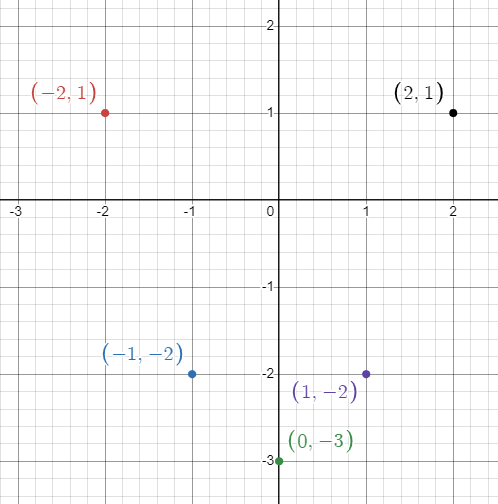
Problem 10 :
Graph the function for the given domain.
-2x + y = 3; D = {-5, -3, 1, 4}
Solution :
-2x + y = 3
D = {-5, -3, 1, 4}
|
When x = -5 -2(-5) + y = 3 10 + y = 3 y = 3 - 10 y = -7 |
When x = -3 -2(-3) + y = 3 6 + y = 3 y = 3 - 6 y = -3 |
|
When x = 1 -2(1) + y = 3 -2 + y = 3 y = 3 + 2 y = 5 |
When x = 4 -2(4) + y = 3 -8 + y = 3 y = 3 + 8 y = 11 |
Writing down the values of x and y as ordered pairs, we get
(-5, -7) (-3, -3) (1, 5) (4, 11)
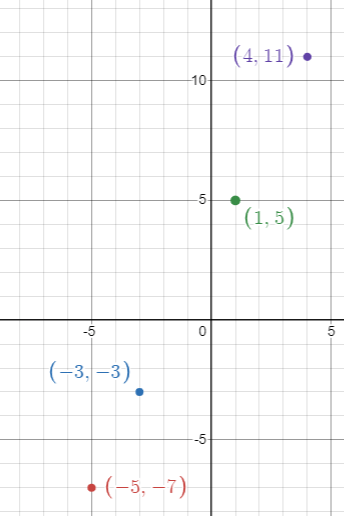
Kindly mail your feedback to v4formath@gmail.com
We always appreciate your feedback.
©All rights reserved. onlinemath4all.com
Recent Articles
-
Logarithmic Derivative Problems and Solutions
Apr 16, 25 09:25 PM
Logarithmic Derivative Problems and Solutions -
Digital SAT Math Problems and Solutions (Part - 145)
Apr 16, 25 12:35 PM
Digital SAT Math Problems and Solutions (Part - 145) -
Digital SAT Math Problems and Solutions (Part - 144)
Apr 14, 25 07:27 PM
Digital SAT Math Problems and Solutions (Part - 144)
